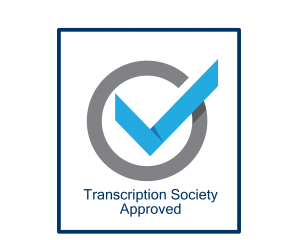We are picking up a number of orders from local authorities and town councils in relation to their websites, following a new set of regulations requiring accessible websites.
Videos – Council Meetings
Quite a few councils video their meetings and then upload them onto their websites for the public to view. One town council this week is currently live streaming to Youtube and then putting the link to the videos on their website.
However the government brought in new Website Accessibility regulations (the imaginatively and catchy title says it all – ‘Public Sector Bodies (Websites and Mobile Applications) (No. 2) Accessibility Regulations 2018’) which apparently began to apply to all public sector bodies in September 2020. Our client (the council) have been told that they need to either add subtitles or provide a transcript of the meetings.
The council can have 22 Councillors and several staff speaking at each meeting, so subtitling and/or transcription is not an easy task for someone internally to handle (along with all their other work).
Transcription Available
Fortunately there is a solution to this – simply upload your video or send us the YouTube link and we can produce a transcript for you, or subtitles if preferred. Whilst a transcript may be more useful generally, subtitles are also available.
Understanding Accessibility
There is a guide to the new regulations on the government website at https://www.gov.uk/guidance/accessibility-requirements-for-public-sector-websites-and-apps#understanding-accessibility.
Making a website or mobile app accessible means making sure it can be used by as many people as possible.
This includes those with:
- impaired vision
- motor difficulties
- cognitive impairments or learning disabilities
- deafness or impaired hearing
At least 1 in 5 people in the UK have a long term illness, impairment or disability. Many more have a temporary disability.
The government site talks about accessibility being more than just putting things online. It also means making your content & design clear and simple enough. For example, someone with impaired vision might use a screen reader (software that lets a user navigate a website and ‘read out’ the content), braille display or screen magnifier. Or someone with motor difficulties might use a special mouse, speech recognition software or on-screen keyboard emulator.
Most public sector websites and mobile apps do not currently meet accessibility requirements
For example, a recent study found that 4 in 10 local council homepages failed basic tests for accessibility. You may be breaking the law if your public sector website or mobile app does not meet accessibility requirements.
Meeting accessibility requirements
The accessibility regulations require local authorities and public sector organisations to make their website or mobile app more accessible by making it ‘perceivable, operable, understandable and robust’. You also need an accessibility statement on your website.
The accessibility regulations add to existing regulations that all UK service providers must consider ‘reasonable adjustments’ for disabled people.
So somebody might ask for information in an alternative, accessible format, like large print or an audio recording. Intranet and extranet websites are covered by the accessibility regulations. Your website or mobile app will meet the newer legal requirements if you:
- meet the international WCAG 2.1 AA accessibility standard.
- publish an accessibility statement that explains how accessible your website or mobile app is.
The best way of doing this is to ask your team to check how far your website or mobile app currently meets WCAG 2.1, and where there are problems. Then, make a plan to fix the problems found. Your web team should use the guide to making your website accessible and publishing an accessibility statement.









